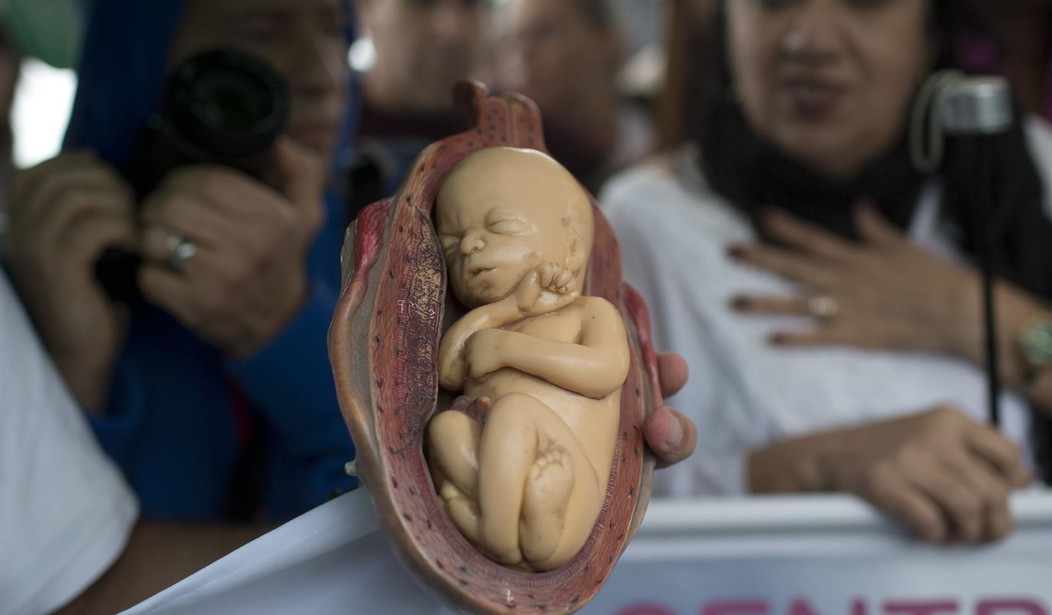A federal appeals court immediately allowed a Georgia law banning abortions after fetal heartbeat detection to go into effect on Wednesday. This bans abortions at approximately six weeks gestation, similar to a laws in Texas and Tennessee.
The Georgia law, signed by GOP Gov. Brian Kemp in 2019, went into effect in the ruling by a three-judge panel from the U.S. Court of Appeals for the 11th Circuit. All three judges were appointed by Republican presidents – President Donald Trump, President George W. Bush and President George H. W. Bush.
According to The New York Times, Chief Judge William H. Pryor Jr., who was appointed by George W. Bush, wrote that the Supreme Court’s overturn of Roe v. Wade last month paved the way for the “heartbeat” law to take effect. In the ruling, Pryor wrote that the Supreme Court’s ruling “makes clear that no right to abortion exists under the Constitution, so Georgia may prohibit them.”
“The abortionists argued that the prohibition of pre-viability but post-fetal heartbeat abortions was unconstitutional under the Fourteenth Amendment as interpreted in Roe v. Wade and Planned Parenthood of Southeastern Pennsylvania v. Casey,” it stated, adding that “but Dobbs forecloses that argument because it makes clear that abortion is not constitutionally protected.”
“We vacate the injunction, reverse the judgment in favor of the abortionists, and remand with instructions to enter judgment in favor of the state officials," it added.
Recommended
In a statement on Twitter, Kemp said he was “overjoyed” by the ruling.
We are overjoyed that the court has paved the way for the implementation of Georgia’s LIFE Act.
— Governor Brian P. Kemp (@GovKemp) July 20, 2022
Read my full statement below: pic.twitter.com/kSOuL1Aunh
“Since taking office in 2019, our family has committed to serving Georgia in a way that cherishes and values each and every human being, and today’s decision by the 11ith Circuit affirms our promise to protect life at all stages,” the statement said. “We are overjoyed that the court has paved the way for the implementation of Georgia’s LIFE Act, and as mothers navigate pregnancy, birth, parenthood, or alternative options to parenthood – like adoption – Georgia’s public, private and non-profit sectors stand ready to provide the resources they need to be safe, healthy and informed.”
Texas’ heartbeat law took effect last summer and was challenged by abortion providers in the state. Townhall reported how a study that came out in February showed the impact the law made on protecting unborn lives. The Associated Press noted how the study showed that abortions dropped by 60 percent.
The Supreme Court’s majority opinion in the Dobbs case last month outlined how the U.S. Constitution does not protect the right to abortion and determined that Roe and Casey were wrongly decided.
“The Constitution does not confer a right to abortion; Roe and Casey are overruled; and the authority to regulate abortion is returned to the people and their elected representatives,” the opinion stated.
“Like the infamous decision in Plessy v. Ferguson, Roe was also egregiously wrong and on a collision course with the Constitution from the day it was decided. Casey perpetuated its errors, calling both sides of the national controversy to resolve their debate, but in doing so, Casey necessarily declared a winning side. Those on the losing side—those who sought to advance the State’s interest in fetal life—could no longer seek to persuade their elected representatives to adopt policies consistent with their views. The Court short-circuited the democratic process by closing it to the large number of Americans who disagreed with Roe.”

























Join the conversation as a VIP Member